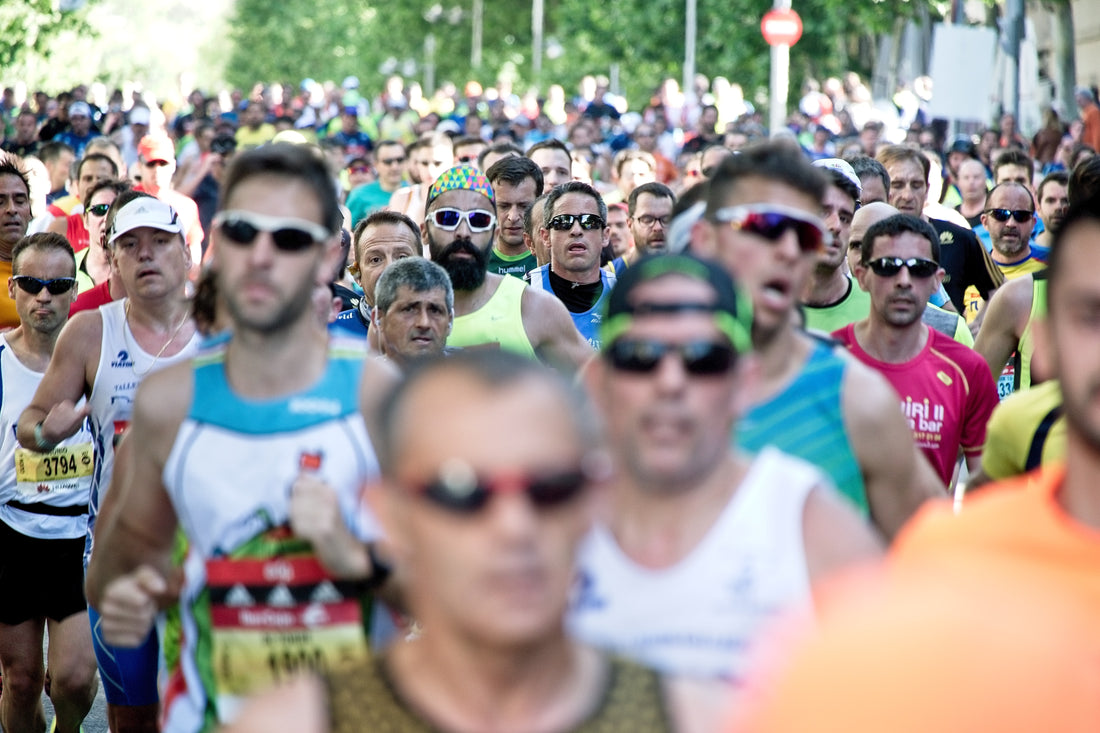For athletes, whether they're running marathons, cycling long distances, or competing in endurance sports of any kind, maintaining peak performance throughout an event is the ultimate goal. While rigorous training and mental fortitude are undoubtedly crucial, nutrition plays an equally vital role in ensuring you have the stamina and energy to go the distance. In this blog post, we'll delve into the critical role of nutrition in maximising endurance and energy for sports performance.
Understanding Endurance in Sports
Endurance sports, like long-distance running, cycling, triathlons, and ultramarathons, require athletes to sustain effort over extended periods. These activities push the limits of cardiovascular and muscular endurance, making energy management paramount. Proper nutrition can be the key to optimising energy levels and enhancing overall performance.
The Importance of Nutrition in Endurance Sports
Here are the primary ways in which nutrition impacts endurance and energy levels in sports:
1. Carbohydrates: The Fuel for Endurance
Carbohydrates are the body's preferred source of energy during exercise, especially for prolonged, high-intensity efforts. Athletes rely on stored glycogen (the stored form of carbohydrates) in muscles and the liver for sustained energy. Consuming adequate carbohydrates before and during exercise helps maintain these glycogen stores, delaying fatigue and enhancing endurance.
2. Proteins: Repair and Recovery
While carbohydrates are crucial for immediate energy, proteins play a critical role in muscle repair and recovery. Endurance athletes experience muscle damage during prolonged efforts, and protein consumption post-exercise aids in repairing and rebuilding muscle tissue.
3. Fats: The Endurance Fuel Reserve
Fats serve as an essential energy source, particularly during low-intensity, long-duration exercise. They are especially important for ultramarathon runners and cyclists who engage in extended efforts. Training the body to efficiently utilize fats for energy can enhance endurance.
4. Hydration: A Key Factor
Dehydration can have a detrimental impact on endurance performance. Maintaining proper hydration is crucial, as even mild dehydration can lead to a significant reduction in endurance capacity. Electrolyte balance, especially sodium and potassium, is also vital for sustained performance.
Pre-Race Nutrition
The days leading up to an endurance event are crucial for nutrition preparation:
-
Carb Loading: Consuming extra carbohydrates in the days before the race can increase glycogen stores, providing a valuable energy reserve.
-
Hydration: Start the race well-hydrated. Drinking sufficient fluids, especially electrolyte-containing beverages, is essential.
During the Event
Nutrition during an endurance event can make or break your performance:
-
Carbohydrate Intake: Consume carbohydrates during the event to maintain energy levels. Energy gels, sports drinks, and easily digestible foods like bananas are popular choices.
-
Hydration: Regularly sip on water or a sports drink to stay hydrated and maintain electrolyte balance.
Post-Race Recovery
After completing an endurance event, proper nutrition is vital for recovery:
-
Protein: Include a source of protein in your post-race meal to support muscle repair and recovery.
-
Carbohydrates: Continue to consume carbohydrates to replenish glycogen stores.
-
Hydration: Rehydrate with water or an electrolyte solution to replace fluids lost during the race.
Real-World Example: The Ironman Triathlon
The Ironman Triathlon, one of the most challenging endurance events in the world, serves as a prime example of the importance of nutrition. Athletes competing in an Ironman cover a total distance of 140.6 miles, including a 2.4-mile swim, a 112-mile bike ride, and a full marathon run. To successfully complete this gruelling event, they rely on a meticulously planned nutrition strategy, ensuring they have the energy to endure and excel.
In Conclusion
In the world of endurance sports, nutrition is an athlete's secret weapon. Properly fueling your body with the right mix of carbohydrates, proteins, fats, and fluids can make the difference between reaching the finish line with strength and energy to spare or hitting the wall prematurely. To maximise endurance and energy in sports performance, it's essential to prioritise your nutrition as meticulously as you do your training regimen. With the right fuel, you can go the distance and achieve your endurance goals, unlocking your full potential as an athlete.

